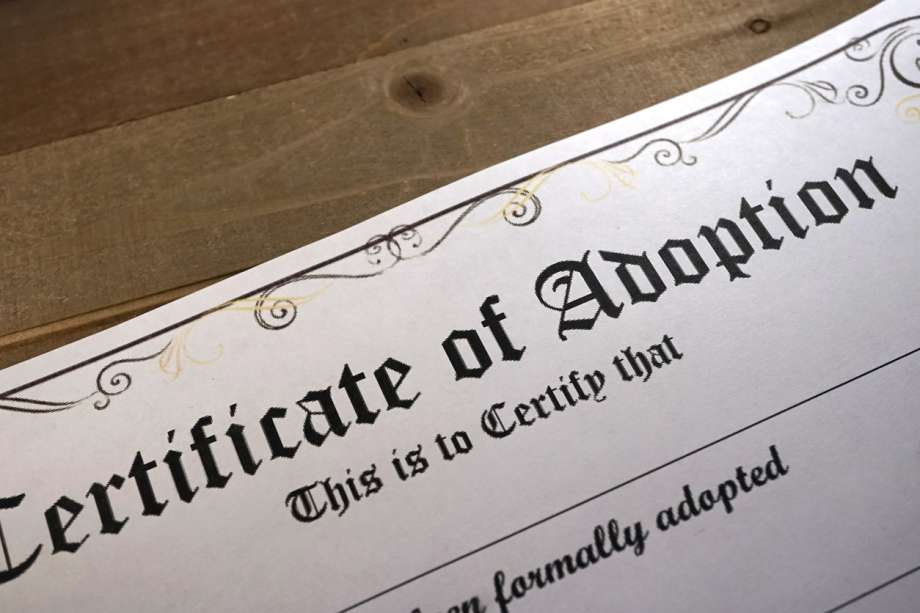When Biological Parents Come into an Adopted Child's Life

If you are an adoptive parent, you will be familiar with the adoption process. It can look wildly different depending on the child and the birth parents’ situation. However, there could come a time one day when your child’s biological family wants a relationship with the child, or the child is curious about where they came from. It can be an emotional time for you no matter the circumstances, and it is important to know how best to handle it all as well as who to turn to.
We are going to talk about different types of adoption, what they mean not only for the adoptive family but the birth family as well, and some steps you can take to receive support if the birth parents suddenly become part of the picture again.
Types of Adoption
There are 4 main types of adoption each with its own rules and regulations. The type will depend on what is agreed upon by the adoptive and birth families and is usually handled by an adoption attorney.
1. Open Adoption
Open adoption is when the birth parents are in contact with the adoptive parents throughout the pregnancy and after the child is born. The level of openness can vary based on the best interest of the child. Often it can include texts, phone calls, letters, photos, and even visits.
2. Semi-Open Adoption
Semi-open adoption means there is limited communication between the adoptive and birth families. Most of the time, all contact will go through an adoption agency or other legal professional. The information shared about the adopted child is typically on a need-to-know basis.
3. Closed Adoption
Closed adoption means there is no contact between the adoptive and birth parents/child’s biological parents. All legal rights to the child go to the adoptive family. You will receive information about the child and their birth family before the adoption without identification. Depending on local law, the records of the adoption may be available to the child after they turn 18 years old.
4. Foster Care Adoption
If a child goes into foster care, it is sometimes because the child’s birth family is no longer capable of taking care of them. The birth parents give up their legal rights to the child and he or she is sent to a foster home or group home. There is also ‘foster to adopt,’ where a child is placed into the care of a foster family and then will either be adopted by them or another family.
Experts often recommend contact of some kind with the birth parents as this is usually what is best emotionally for the child. However, there are a few circumstances in which this might not be possible or safe.
Why Might the Biological Family Not Be Involved?

There could be several reasons why the birth parents are not a part of your child’s life. It could be because:
- There is no record of who the birth parents are. This could be because of a closed adoption or because the child was abandoned at birth.
- The birth parents no longer wanted any contact. Again, this usually results in a closed adoption where there is no contact with the biological parents at all. Other times, the biological parent changes their mind and doesn’t want to stay in touch with the child or the adoptive parents.
- The parents were abusive. Child abuse is never something to be taken lightly. If a child was removed from their home because of abuse then it is likely that all contact with the birth father and/or birth mother will end for legal reasons.
If this is the case for you, and the birth parents have no contact with your child, there may come a time in the future when this changes.
Finding the Birth Parents, or Birth Parents Finding You
There may come a time when your older child or adolescent will ask about their roots. In most states, when a child turns 18 years old they can access adoption records, and sometimes if they are not of age, they just need the consent of their adoptive parents. Being an adoptee can be difficult for any child, especially if the child knows very little about their past and is curious about where they come from.
This is a situation that you can prepare for. But no matter what type of adoption process you went through or how well planned it was, no one can predict the future, and there is every chance the birth parents may change their mind one day about what type of contact they agreed to. This is something that is much harder to prepare for. If the birth parents suddenly want contact again with your child, it can cause an onset of overwhelming emotions.
Steps to Follow if the Birth Parents Want Contact
You might be wondering “why do they want contact now, after all this time?” The important thing is to make all of your decisions based on the well-being of your child. After all, you are their legal parent.
- First, you will want to consider the circumstances of the adoption. Was it recent? Was your child adopted at birth? Was there any sort of abuse involved? (This can include physical, alcohol, emotional, or substance abuse). Have they ever had any contact with you before? What kind of contact are they wanting? Write down all your questions and discuss them with your adoption agency.
- It is crucial to stay calm during this time and seek support. That can look like leaning on your partner, speaking to a therapist, or simply getting legal advice to better understand what your parental rights are, and what the biological parents' rights may be.
- If, after consulting with legal experts and deciding that it is safe for your child to meet their biological parents, you will want to talk to your child. Ask them how they would feel about it. If your child is very young or does not know they are adopted, try and lean on family members for advice and support, or consider asking a child psychologist what would be the least emotionally damaging route to take.
Receiving Extra Support
For more detailed information on adoption, you can visit The National Council For Adoption, AdoptUSKids. You could also consider joining a support group for adoptive parents, whatever stage you are at in your adoption process.
If your child wants to meet their birth parents and after consulting with the relevant people you have decided to support and help them, there are adoption registries. These are proven helpful if the birth mother or birth father is searching for their child as well. This isn’t as commonly used but can be worth looking into.
If you are an adoptive parent and you find yourself struggling with your child’s biological family members wanting to be part of their life again, you are not alone. Depending on the reason for the adoption and the type of adoption, it is natural to feel some concern. Take it one step at a time, and lean on the resources available to support you.

